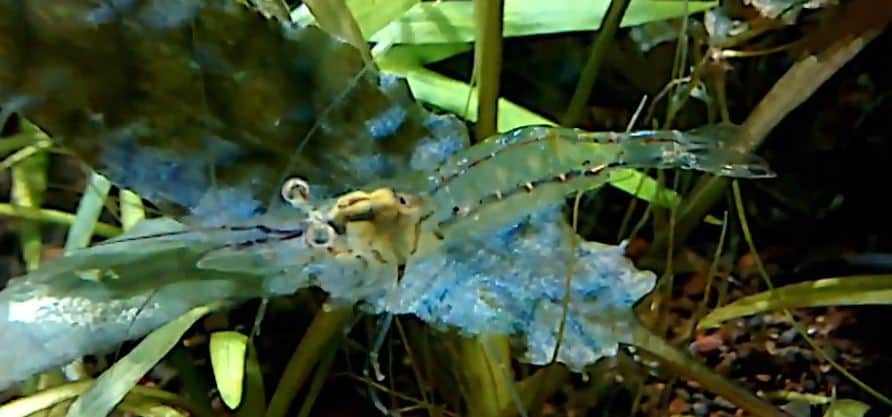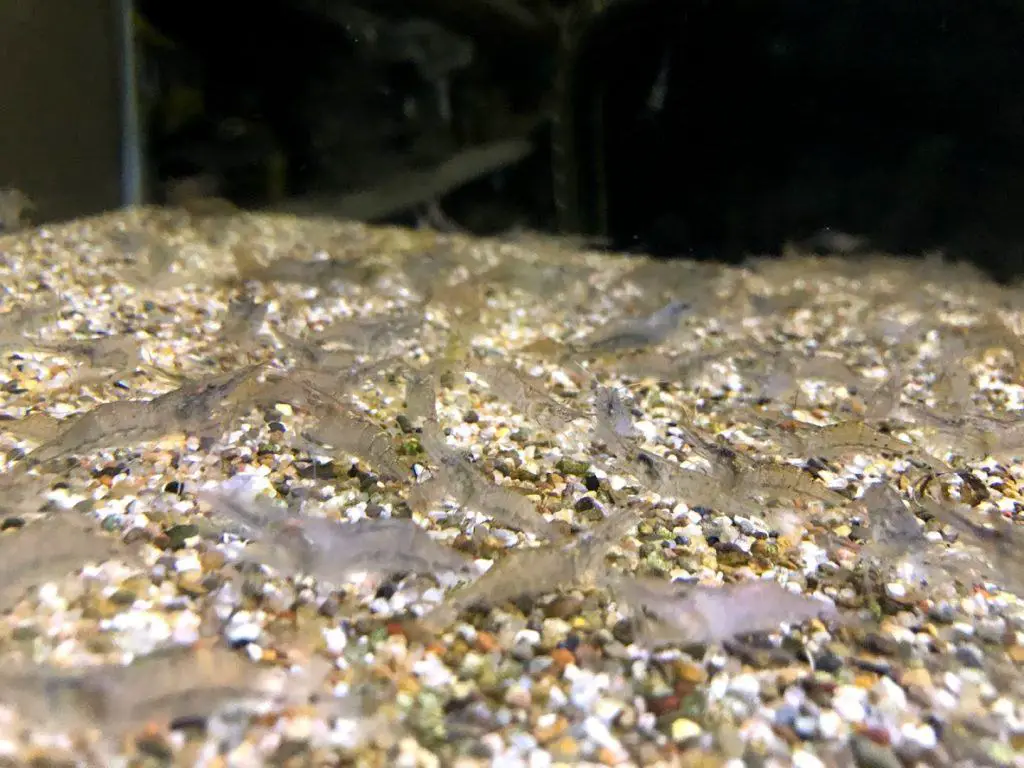Ghost shrimps, also known as glass shrimps in some areas, are among the most popular freshwater crustaceans that are well-known for their cleaning abilities. These tiny critters are pretty low maintenance and would typically eat whatever falls at the bottom of your aquarium, which most of us consider “waste.”
Even with their fantastic ability to breakdown these wastes that end up piling at the bottom, they still have a certain standard in terms of what they could consider as “food” and won’t eat some organic matters. One of these is fish poop, widely believed to be part of the stuff that ghost shrimps can eat, but is it?
Do Ghost Shrimp Eat Poop?
Ghost shrimps do eat fish poop. After a fish poops out his meal, there are still many nutrients in the fish waste which the ghost shrimp can digest. Ghost shrimp, like may other shrimp, are feeders of opportunity. Ghost shrimps can and will eat almost anything that falls near their home, which is typically the bottom part of your aquarium.
However, despite their wide range of diet, ghost shrimps are considerably peaceful and gentle in nature and will never attack any of their tank mates to eat them. In fact, on the contrary, ghost shrimps are often purchased as food for bigger fish such as Cichlids or Bettas. So if you want to raise and “employ” them as your tank cleaners, never put them together with those predatory breeds.
Instead, you can put them in the same tank and other generally peaceful fish breeds such as Loaches or Danios and non-fish species like snails or other freshwater shrimp species.
Ghost Shrimp Diet
Ghost shrimps, just like their other shrimp relatives, mainly follow a scavenger diet. They are even considered the “cockroaches of the sea” due to the same eating habit they exhibit, closely resembling their distant land cousins. However, they are undoubtedly more pleasing to look at when they’re feeding (no offense to the few cockroach lovers). The following are some of the things that a typical ghost shrimp would gladly eat:
- Algae – In the wild, the main bulk of ghost shrimps’ diet consists of algae, which typically grows on underwater rocks and are much more abundant on streams with a slower flow.
- Dead plants – Ghost shrimp could also eat dead plants in the form of detritus, which are products made from the breaking down of organic matter. If they have no other choice, ghost shrimps will even nibble on live plants, but since they’re too small, their damage to these plants is usually considered negligible, unless they feed on it with high numbers.
- Eggs/Larvae – Since they’re scavengers, ghost shrimps naturally prefer eating dead organic matter instead of living ones. Sometimes, they can also feed on much smaller organisms if they unluckily end up near their mouths, but they won’t actively hunt for them.
- Fish pellets – Bits and pieces of fish pellet that your fishes missed would not end up getting wasted when you have ghost shrimps since this is their primary source of food in an artificial environment such as your aquarium.
- Dead fish – If one of their tank mates ends up dying and you failed to notice it early on, you’ll find your ghost shrimps swarming and having a buffet out of the unlucky fellow, breaking them down bit by bit until only bones are left.
- Dead shrimp – Ghost shrimps particularly like the brethren’s taste as they are a known cannibalistic species. Thankfully, their relatives will only be seen as food once they die, so you won’t have to worry about these shrimps doing their own battle royal, where only a single one will be able to stay alive.
- Other bits of food – As long as it’s not poop and can be eaten by other fishes, you can safely give it to your ghost shrimps. Just make sure to do proper research on how much nutrition they need to not end up with literal ghost shrimps no longer among the living.
How Often Do Ghost Shrimps Eat?
Due to their small sizes, which equates to a slimmer stomach, ghost shrimps cannot eat up in one go and rest for a while, just like typical fishes do. Instead, ghost shrimps eat their food bit by bit throughout the day and do not have any particular schedule that you need to follow.

If you have any algae on your aquarium, you can save on food expenses since that will be enough. However, if your aquarium has little to no algae, you can give them the same fish food you give to your other fish breeds.
Depending on their living conditions, a typical ghost shrimp could grow up to one and a half inches and live up to a few days to a year. So if you find them very cute and want to have them as pets, be prepared for the sense of loss that you might experience once they suddenly kick the bucket and leave this mortal world.
So, are their fishes that do eat poop?
Now that you found out that ghost shrimps don’t eat fish poop, you might be wondering if there are aquatic species that love to act as a living toilet bowl. Well, some species do eat poop, such as corydoras and pleco. However, even if they eat fish poop, they are not enough to serve as their primary source of food since poop has little to no nutritional value left in it, which is why it was excreted in the first place.
Instead of trying to get other species to clean fish poop for you, you could save plenty of effort and resources by only using conventional ways such as using suitable old’ siphons. Cleaning your pre-filter sponges is a much better idea than relying on poop eaters to do the job for you.
Although there is nothing wrong with trying out new and innovative methods, you could be endangering the lives of all those tiny aquatic inhabitants that much depend on you. The best way is still to do proper research before attempting to try anything new.


